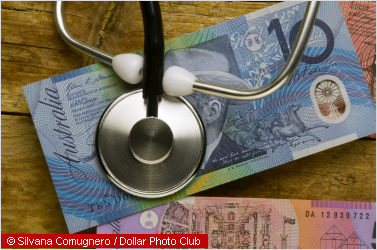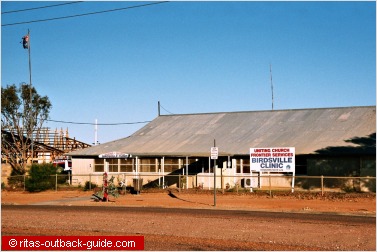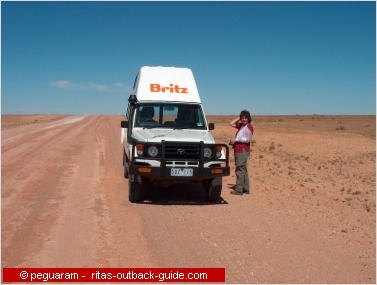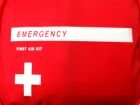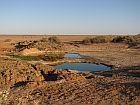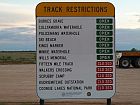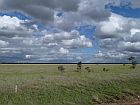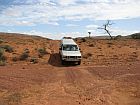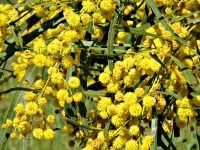
Health Advice for travellers
Tips for travellers to the Australian Outback
Why do I write about health advice for travellers in the Outback guide? Well, some general health tips and basic first aid information are definitely part of the Outback safety.
Even if you don't want to think that health problems could crop up and ruin your precious holidays, there are a few basic tips that help to keep your tour to Australia and the Outback hassle free.
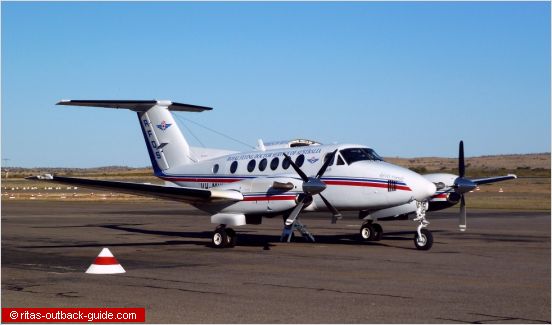
Please note: I am not a doctor, and any tips in this health advice for travellers section are based on my own opinion and experience. It should never replace your doctor's advice.
If you already have some health problems like high blood pressure or diabetes, please check with your doctor before you go. Take all the medications you need for your trip, and perhaps a doctor's description, just in case you run out of your medicine.
Carry a small cooler bag to keep delicate medicine cool. For example, insuline, eye/nose drops and ointments should never be exposed to heat.
Capital Cities
Accommodation
Special Interests
- General Facts
- Australian States
- Photo Gallery
- Climate & Bushfires
- Australian Wildlife
- Australian Opal
Rent A Campervan
Before you start your journey
- If you plan a longer Outback trip to remote areas it is a good idea to have a general health check with your doctor before you go.
- Update your routine immunizations, especially tetanus. Again, ask your doctor, tell him about your plans. He knows you best, and he's the one to give you more health advice for your travels.
- You don't need any special travel immunizations to enter Australia, unless you've visited a yellow fever infected area in South America or Africa before you come to Australia.
- I highly recommend to bring some medicine and some first aid kit supplies from home.
General health advice for travellers
- Heat and sun exposure are the main risks for your health in the Outback. Wear loose cotton clothing, sunglasses and always a wide-brimmed hat. Check for the general climate in the areas you plan to visit.
- Be careful that you don't get dehydrated. Drink water frequently, even if you don't feel thirsty. Alcohol, coffee and sweet soft drinks don't prevent dehydration, so please don't forget the water. Keep the beer or wine for the nights on the camp fire :).
- Hygiene standards in Australia are good. You don't need to worry about eating in restaurants or take-aways, not even in the bush. However, it is always important to seek local advice about tab water. The quality of tab water varies throughout Australia, so ask the people who know.
- Insect bites - mosquitoes, sand flies, and other nasty insects can cause itchy spots and infections. Malaria is not common in Australia, so there is no need to take malaria prophylaxis.
- Occasionally, there are local outbreaks of virus infections transmitted by mosquito bites, e.g. Ross River virus infection, Murray Valley encephalitis. The best thing you can do to avoid getting bitten is insect protection.
- Apply insect repellents frequently. Wear long sleeves and long pants after sunset, especially near water. And when you got bitten, my best tip is to apply Australia's natural remedy, Tea Tree Oil. It stops the itching and prevents infections.
- In case of any emergency call 000. This call connects to the ambulance, fire and police services, whichever you need.
Travel Health Insurance
Australia's high standards in health care, so it can become costly if you need a doctor, or even worse, have to go to hospital. A health insurance for travellers from overseas is highly recommended before you go on your Outback trip. It puts your mind at ease.
Australia has reciprocal health care agreements with a few overseas countries. Click here for more information and to see if your country is on the list.
If you need a doctor
Thanks to the wisdom of Reverend John Flynn, who put the mantle of safety over the Outback early in the 20th century, you can even seek medical help in remote bush towns. John Flynn also invented the Royal Flying Doctor Service.
Outback hospitals are usually staffed with an experienced nurse. These nurses can always get advice from a doctor on the phone. In case of emergency, the flying doctor service is available for tourists, too.
Once I needed a doctor in Australia
On one of my trips to Australia I had an accident on the first day of our tour. I fell down and broke my upper arm. Luckily, (if you can talk of luck here) it happened only a couple of hours outside of Adelaide, so a doctor was not too far away. The inside fracture didn't need further treatment, I just had to wear the arm in a sling. But boy, it did hurt, and somewhat spoilt our trip!
A few days later I visited the bush hospital in Birdsville to have the abrasion checked. I had a nice chat with the nurse. She gave me some useful advice, and reassured me that everything was fine.
I was very pleased with the doctors in Australia, and I didn't think the treatment was that expensive. But it could have been worse, and then a health insurance for travellers would have been worth its costs.
I hope these tips were helpful and they took away some worries from you. The Australian Outback is a remote area, so it is good when you can help yourself with minor emergencies.
Buy a First Aid Kit Online
Travel Universe in Australia has a wide range of travel books and essential gear.
Click here for a choice of basic & comprehensive first aid kits. Choose one that includes a first aid booklet and a heavy bandage to deal with a strained ankle or snake bite.
